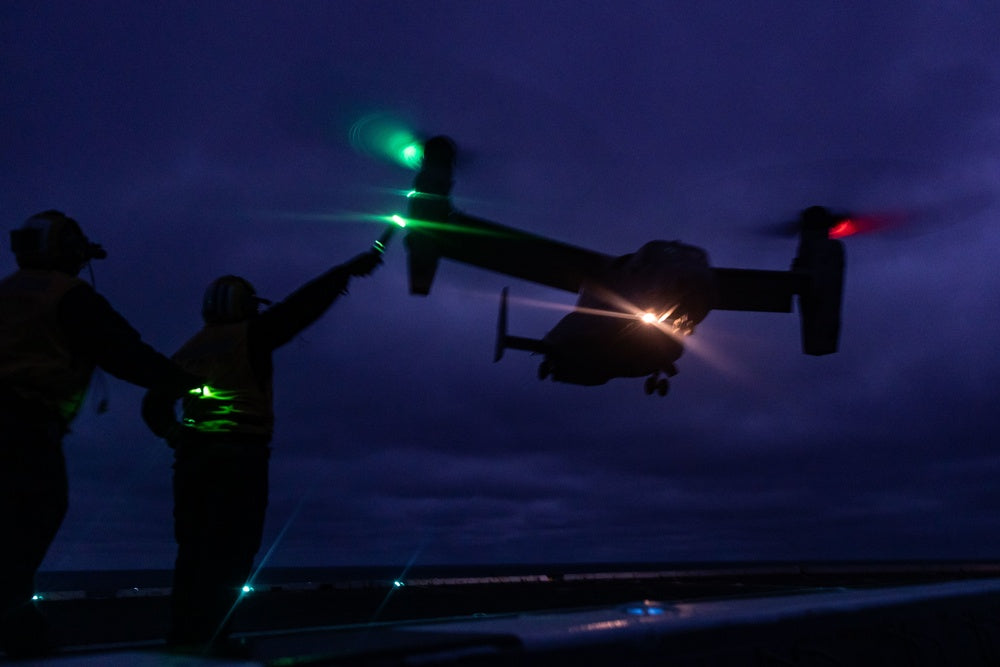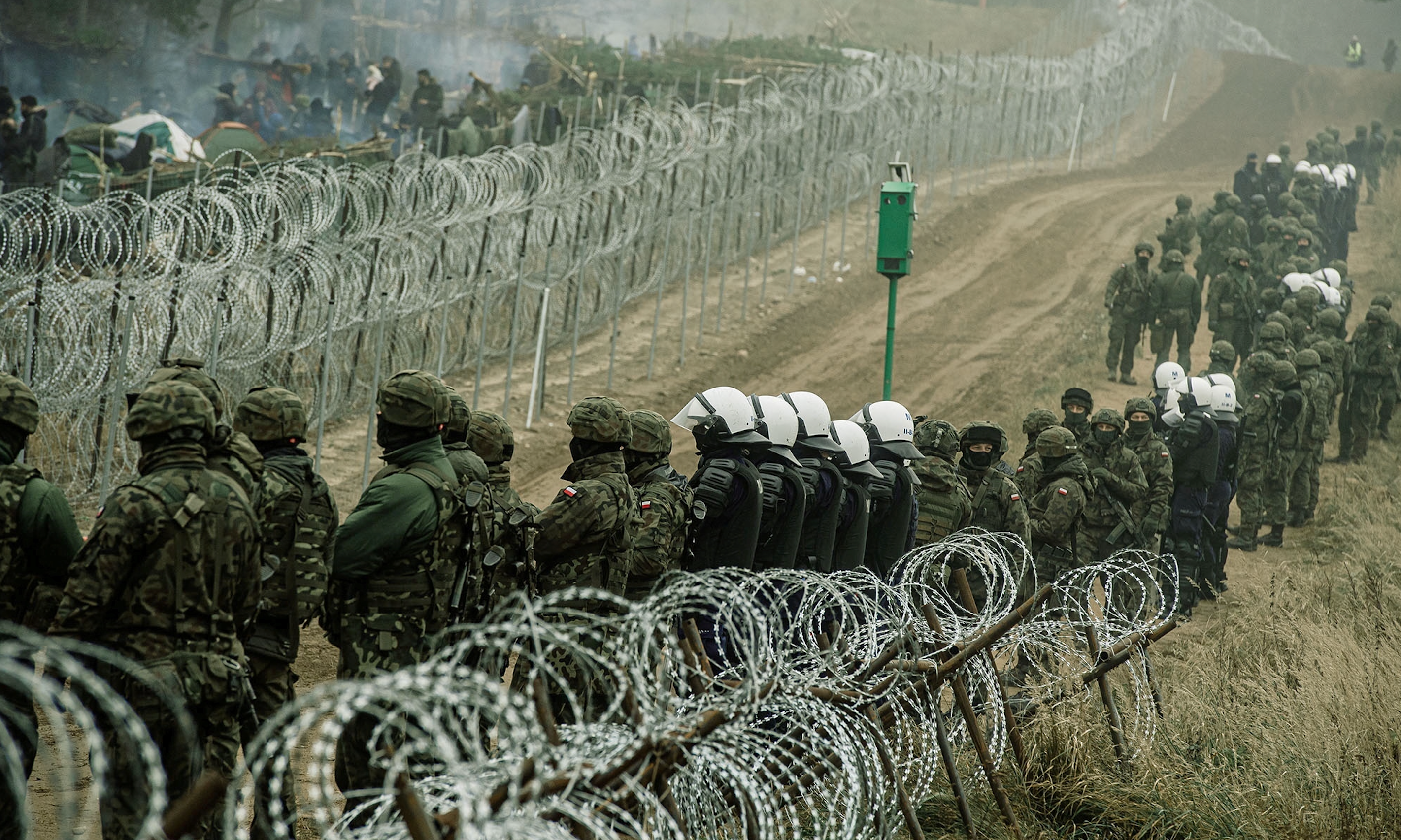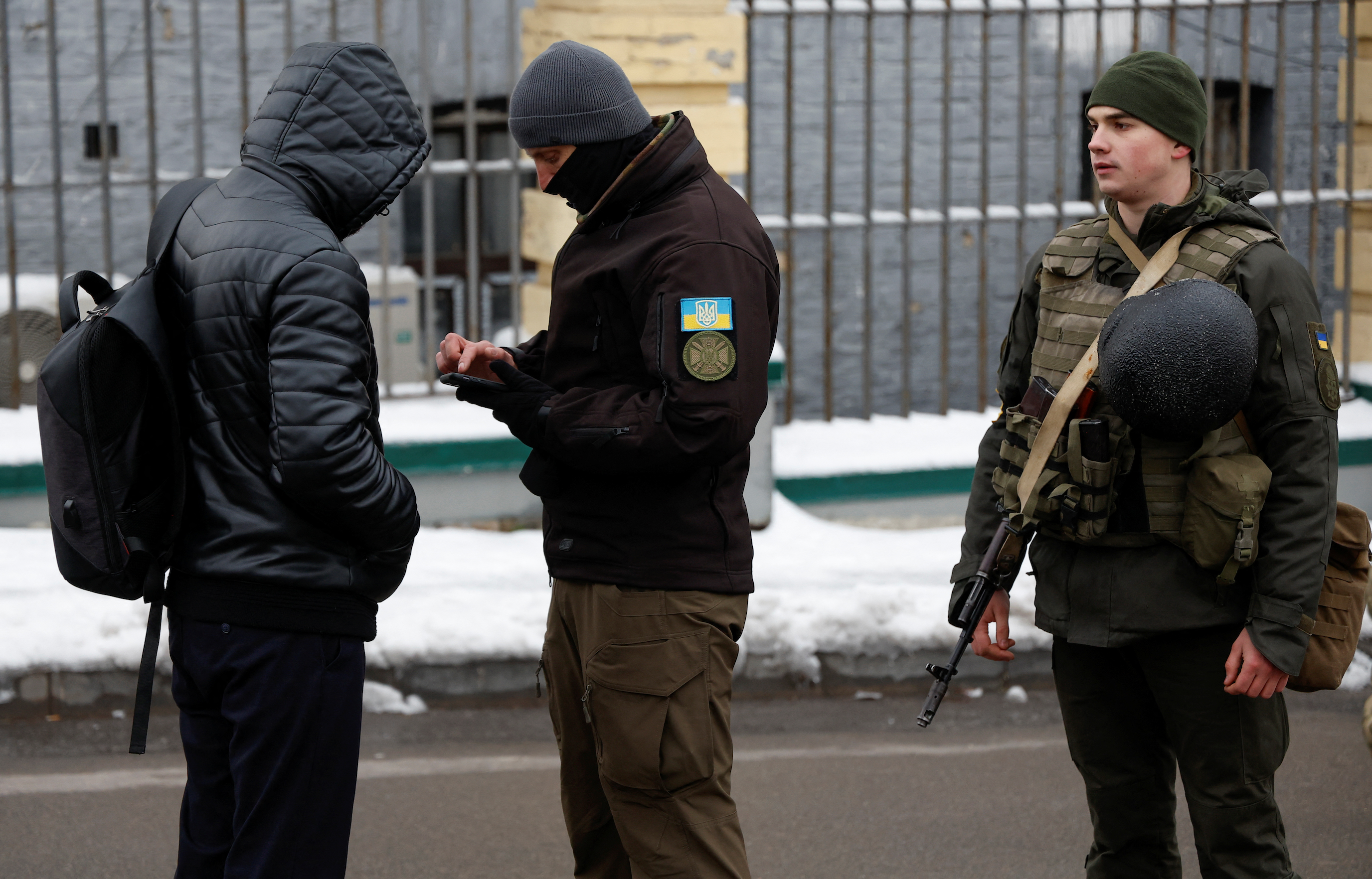
Japan “concerned” US continues to fly Ospreys despite grounding request
PHOTO CAPTION: U.S. Navy Sailors guide a U.S. Marine Corps MV-22 Osprey aboard the San Antonio-class amphibious transport dock ship USS Mesa Verde (LPD 19) during Amphibious Squadron/MEU Integrated Training, Feb. 1, 2023. (U.S. Marine Corps photo by Staff Sgt. Jesus Sepulveda Torres via U.S. Defense Visual Information Distribution Service)
By Mariko Katsumura and John Geddie
TOKYO (Reuters) -Japan is concerned that the U.S. military is continuing to fly its V-22 Osprey aircraft despite its request to ground them until their safety is confirmed after a fatal crash this week, Tokyo's top government spokesperson said on Friday.
Japan, a key U.S. ally, had sought the suspension of all non-emergency V-22 Osprey flights over its territory after one fell into the sea on Wednesday in western Japan. Japan's Coast Guard has said one person was found and confirmed dead, and the search for the remaining seven aboard continues.
The Pentagon said on Thursday that it was still flying Ospreys for now, and that it was not aware of any official request for their grounding. The cause of the crash is under investigation.
Asked about that statement, Japan's chief cabinet secretary, Hirokazu Matsuno, said Tokyo had "officially" made the request.
"We are concerned that despite our repeated requests, and in the absence of sufficient explanation (from the U.S. military), the Osprey continues to fly," he told a news conference.
The Japan Self-Defense Forces (SDF), which also operates Ospreys, has said it would suspend flights of the transport aircraft.
Japan's foreign minister, Yoko Kamikawa, said she had directly asked U.S. ambassador to Japan Rahm Emanuel on Thursday to confirm the safety of Osprey flights before further flights were carried out.
The U.S. embassy in Japan declined to immediately comment.
The deployment of the hybrid aircraft in Japan has been controversial, with critics of the U.S. military presence in the southwest islands saying it is prone to accidents.
Pacifist Japan hosts the biggest overseas concentration of U.S. military power, with the country home to the only forward-deployed American carrier strike group, its Asian airlift hub, fighter squadrons and a U.S. Marine Corps expeditionary force.
Robert Dujarric, a scholar at Tokyo's Temple University, said Japan was very sensitive to residents' concerns about military operations, which date back to Japan's defeat in World War II and its subsequent reliance on the U.S. for security.
"They think that if it looks like the U.S. and Japan are not sufficiently investigating this, it is going to put problems on deployment because in Japan, unlike what happens in other countries, the local communities have an impact on what type of assets are deployed," he said.
Dujarric said that he did not expect the issue to "blow up" into a major diplomatic spat between the allies, who have been forging closer ties in the face of China's increasingly muscular military stance in the region.
(Reporting by Mariko Katsumura and John Geddie; Writing by Chang-Ran Kim; Editing by Gerry Doyle)









